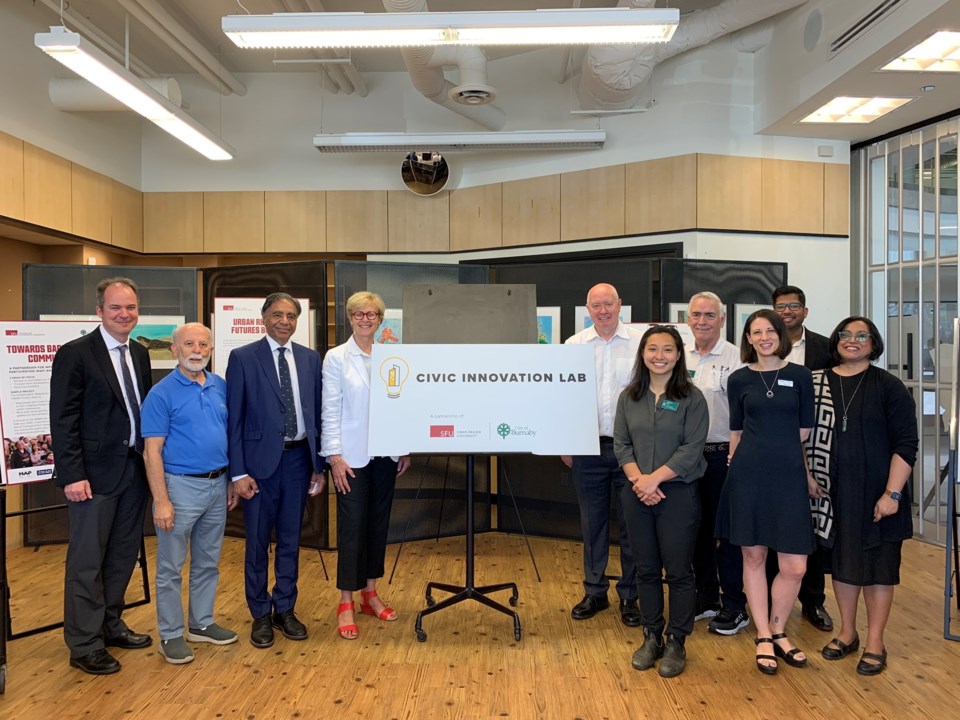The Civic Innovation Lab officially launched last Thursday (July 14) — a partnership between the City of Burnaby and Simon Fraser University to research and develop solutions to civic issues and challenges.
The formal partnership enables the city to use SFU’s academic research to solve real-world problems, according to a city staff report.
The Civic Innovation Lab is a non-profit society, jointly controlled by the city and SFU.
As a non-profit, it can take advantage of government research grants, as well as “provide a forum for community engagement and co-creation.”
Initial projects include expanding Burnaby’s involvement in the Mobility, Access and Participation (MAP) among People with Disabilities project and furthering the Urban Resilient Futures Initiative, which works for a resilient, low-carbon future.
The lab will also research improving the water quality of Deer Lake, aiming to make it swimmable again and explore hydrogen power to provide energy for civic facilities.
“Our world is changing rapidly and cities like Burnaby need to be able to adapt quickly and deploy innovative solutions to solve the emerging challenges we face in the 21st century, and we’re excited to be partnering with one of Canada’s top research universities to find those solutions,” said Mayor Mike Hurley in a statement.
“This is an exciting moment for our community as municipalities across Canada will benefit from the projects in development at the Civic Innovation Lab.”
“SFU is home to many researchers who are passionate about making a difference and whose work is directly relevant to the cities we live in,” said SFU President Joy Johnson.
“I am thrilled that the Civic Innovation Lab will give them a chance to apply that knowledge, making a difference in our local communities and directly improving the lives of people in Burnaby and beyond.”
In March, Burnaby council approved $175,000 to second a full-time staff person to support the lab, and contributions to administrative support, office space and supplies.
SFU will also second one full-time position for the lab and contribute 50 per cent towards office administrative and support costs.
Potential areas of research for Burnaby’s Civic Innovation Lab:
- Climate change
- Data analytics (Call centre data)
- Horticulture (LiDAR light detection ranging, tree health, beetle infestations)
- Mathematical modeling (Pollution, noise, odour, water quality)
- New waste facility (Composting, district energy, research lab, gas)
- Transportation (North-South corridor, driverless cars and city design)
- WIFI mesh (Monitoring temperature, air quality, traffic)
- Other (Social housing, Deer Lake remediation, adaptive streetlights)
There have also been discussions around creating a city scholars’ program to host students and researchers on specific annual priorities.
Previous partnerships between the city and SFU include:
- Burnaby Festival of Learning
- Urban Resilient Futures Initiatives
- Mayor’s Task Force on Community Housing
- Migration Stories Project
The Civic Innovation Lab is hosted at the Christine Sinclair Community Centre.




